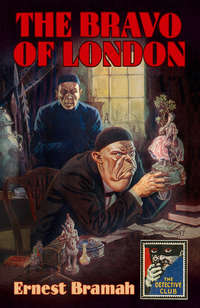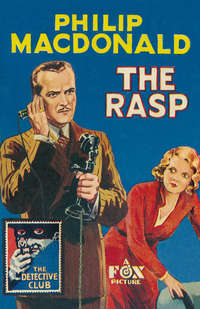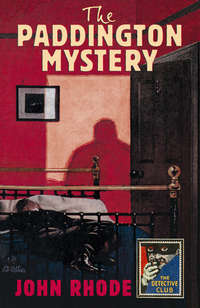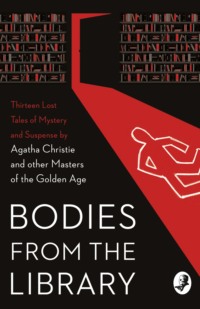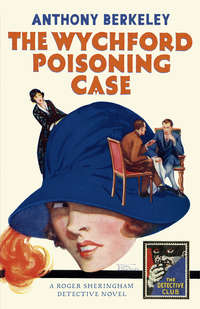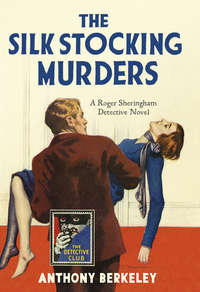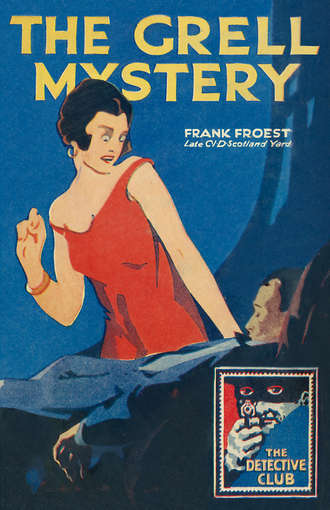
Полная версия
The Grell Mystery
He was a thin-faced man of about thirty, with somewhat sallow cheeks on which there was now a hectic flush, a high-pitched forehead that seemed to have contracted into a perpetual frown, and colourless eyes. The son of a well-known barrister, he had tried his luck in the City after leaving Cambridge. In a few years the respectable income he had started with had dwindled under the drain of his speculations, and it was then that a friend had recommended him to Robert Grell, who was about to take up his residence in England. James Lomont had jumped at the chance, for the salary was respectable and would enable him to maintain a certain footing in society.
‘Not Robert Grell!’ he echoed incredulously.
Foyle fancied that there was some quality other than incredulity in the tone, but decided that he was mistaken. The young man’s nerves were shaken up. So far as time would allow he had gathered all there was to know about him. Lomont had not escaped the network of inquiry that was being woven about all who had associated with Robert Grell.
No fewer than three chapters in a book the Criminal Investigation Department had commenced compiling were devoted to him. They lay with others neatly typed and indexed in Heldon Foyle’s office.
One was his signed statement of events on the night of the tragedy. The last time he had seen Grell alive was at half-past six, when his employer had left for the St Jermyn’s Club. He himself had gone to the Savoy Theatre, and, returning some time after eleven, had let himself in with his own key and gone straight to bed. He had only been aroused when the police took possession of the house. The third was headed: ‘Inquiries as to career of, and corroboration of statements made by, James Lomont’.
The curtains had remained drawn, and only a dim light filtered through into the room. Foyle lifted a little green-shaded electric lamp from the table, and switched on the light so that it fell on the face of the dead man.
‘Look,’ he said, in a quiet voice, ‘do you recognise your chief?’
The young man flung back his shoulders with a jerk, as though overcoming his own feelings, and approached the body with evident distaste. His hands, slender as a woman’s, were tight-clenched, and his breath came and went in nervous spasms. For a moment he gazed, and then shook his head weakly.
‘It is not,’ he whispered with dry lips. ‘There is an old scar across the temple. Mr Grell’s face was not disfigured.’ He stretched out a hand and clutched the superintendent nervously by the shoulder. ‘Who is this man, Mr Foyle? What does it all mean? Where is Mr Grell?’
Foyle’s hand had stolen to his chin and he rubbed it vigorously.
‘I don’t know what it means,’ he confessed irritably. ‘You know as much as I do now. This man is not Robert Grell, though he is astonishingly like him. Now, Mr Lomont, I rely on you not to breathe a word of this to a living soul until I give you permission. This secret must remain between our two selves for the time being.’
‘Certainly.’
In spite of his air of candour, Heldon Foyle had not revealed all he knew. He left the house pondering deeply.
‘You see, sir,’ he explained to the Assistant Commissioner later, ‘no one who knew Grell had seen the body closely. The butler had taken it for granted that it was his master. It was pure luck with me. In looking through the records in search of this woman Petrovska, I hit against the picture of Goldenburg. It was so like Grell that I went off at once to compare finger-prints. They tallied; and then young Lomont spoke of the scar. Though what Harry Goldenburg should be doing in Grell’s house, with Grell’s clothes, and with Grell’s property in the pockets, is more than I can fathom.’
Sir Hilary Thornton drummed on his desk with his right hand.
‘Isn’t this the Goldenburg who engineered the South American gold mine swindle?’ he asked.
‘That’s the man,’ agreed Foyle, not without a note of rueful admiration. ‘He’d got half-a-dozen of the best-known and richest peers in England to promise support, when we spoilt his game. No one would prosecute. He always had luck, had Goldenburg. He’s been at the back of a score of big things, but we could never get legal proof against him. He was a cunning rascal—educated, plausible, reckless. Well, he’s gone now, and he’s given us as tough a nut to crack as ever he did while he was alive.’
‘How did you get his finger-prints if he was never convicted?’ asked Sir Hilary with interest.
Foyle looked his superior full in the face and smiled.
‘I arrested him myself, on a charge of pocket-picking in Piccadilly,’ he said. ‘Of course, he never picked a pocket in his life—he was too big a crook for that. But we got a remand, and that gave us a chance to get his photograph and prints for the records. We offered no evidence on the second hearing. It was perhaps not strictly legal, but—’ The superintendent’s features relaxed into a smile. ‘He never brought an action for malicious prosecution.’
‘And about Grell? How do you propose to find him?’
Foyle drew his chair up to the table and scribbled busily for a few minutes on a sheet of paper. He carefully blotted it, and handed the result of his labours to Sir Hilary, who nodded approval as he read it.
‘You think we shall catch one man by advertising for another?’
‘I think it worth trying, sir,’ retorted the superintendent curtly. ‘The description and the photograph fit like a glove—and we shan’t be giving anything away.’
As Heldon Foyle passed through the little back door leading to the courtyard of Scotland Yard an hour later, he stopped for an instant to study a poster that was being placed among the notices on the board in the door. It ran:
POLICE NOTICE.
———
£100 REWARD
HARRY GOLDENBURG, alias THE HON. RUPERT BAXTER,
MAX SMITH, JOHN BROOKS, etc.
WANTED FOR
MURDER.
———
DESCRIPTION.—Age, about 45; height, about 6 ft. 1 in.;
complexion, bronzed; square features; grey hair;
drooping grey moustache; upright carriage.
NOTE.—Henry Goldenburg has travelled extensively, and
is an American by birth, but his accent is almost
imperceptible. He speaks several languages, and
has resided in Paris, Madrid, and Rome.
———
The above Reward will be paid to any person (other
than a member of any Police force in the United
Kingdom) who gives such information as will lead
to the apprehension of the above-named person.
The superintendent had wasted no time.
CHAPTER VII
THE first grey daylight had found Sir Ralph Fairfield pacing his sitting-room with uneven strides, his hands clasped behind his back, the stump of a cold cigar between his teeth. His interview with Heldon Foyle had not been calculated to calm him.
‘I’m a fool—a fool,’ he told himself. ‘Why should they suspect me? What have I to gain by Grell’s death?’
It was the attitude of a man trying to convince himself. There was one reason why he might be supposed to wish his friend out of the way, but he dared not even shape the thought. There was one person who might guess, and it was she whose lips he hoped to seal. A quick dread came to him. Suppose the police had already gone to her. The thought stung him to action. He had not even removed his hat and coat since his return from Grosvenor Gardens. He made his way to the street and walked briskly along until he sighted a taxicab.
‘507 Berkeley Square,’ he told the driver.
It was a surprised footman who opened the door of the Duke of Burghley’s house. Fairfield, at the man’s look of astonishment, remembered that he was unshaven, and that his clothes had been thrown on haphazard. It was a queer thought to intrude at such a time. But he was usually a scrupulously dressed man, and the triviality worried him.
‘Lady Eileen Meredith. I must see her at once,’ he said peremptorily. ‘Don’t stand staring at me, man. You know me.’
The footman coughed apologetically.
‘Yes, Sir Ralph. Lady Eileen is not up yet. If it is important I can get a maid to call her. Shall I tell his Grace?’
‘No. It is of the utmost importance that I see her personally immediately.’
Sir Ralph breathed a sigh of relief as he was ushered into the cool morning room and the door closed behind him. At all events, the police had not seen her yet. He was first. That meant he would have to break the news to her. How would she take it?
‘The poor little girl!’ he muttered to himself. And then the door clicked.
Eileen Meredith stood there, a pink dressing-gown enveloping her graceful figure from shoulders to feet. There was questioning wonder in her grey eyes as she extended her hand, but no alarm. He almost wished there was. It would have made things easier.
‘You, Sir Ralph?’ she cried. ‘What has brought you here so early? Has Bob repented of his bargain and sent you to call it off at the last moment?’
The man fumbled for words. Now that he was face to face with her the phrase he had so laboriously worked out to lead up to the news had deserted him. He pushed a chair towards her.
‘Er—won’t you sit down?’ he said awkwardly.
He was striving for an opening. Both words and tone called the girl’s direct attention to the haggard face, the feverish eyes. Her fears were alight on the instant. She regarded him with parted lips and gripped his arm impulsively.
‘Something has happened!’ she cried apprehensively. ‘Why do you look like that? What is it?’ Her voice rose and she tried to shake the silent man. ‘Answer—why don’t you answer? Is he ill—dead?’
Sir Ralph choked over his reply.
‘He was killed last night—murdered.’
It was out at last. He had blundered clumsily, and he knew it. The colour drained from Eileen’s face and she stood rigid as a statue for a moment. Then slowly she swayed forward. He stretched out his arms to prevent her from falling. She waved him aside dumbly and tottered to a couch. His directness had been more merciful than he had thought. She was stunned, dazed by her calamity. Her very silence frightened the man. She sat bolt upright, her hand resting limply in her lap and her dull eyes staring into vacancy. A tiny clock on the mantelpiece ticked loudly.
‘Dead!’ she whispered at last. There was no trace of unsteadiness in her voice and her eyes were dry. She spoke mechanically. ‘And it is our wedding-day! Dead! Bob is dead?’
Her hair had fallen about her shoulders, and, beautiful in her grief, she inspired the man with almost supernatural awe. He had moved to the mantelpiece and, resting an arm upon it and one foot upon the fender, remained looking down upon her. He was waiting until the first numbness of the shock had passed. The little clock on the mantelpiece had ticked out ten minutes ere she spoke again. But her voice was pitched in more natural tones, and her face had regained something of its colour.
‘How did it happen?’
Haltingly he gave such details as he knew. Her eyes were fixed on his face as he narrated his story. He hesitated as he referred to his telephone conversation with her. In her clear eyes he saw challenging scorn and stopped abruptly.
‘You say that Bob asked you to lie to me?’ she demanded.
‘Not to you in particular. To anyone who rang up. I couldn’t know whether he wished his instructions to apply to you.’
‘No, no, of course not,’ she interposed quickly, but with a tightening of the heart he recognised the bitterness of her tone. For all her soft daintiness, there was something of the tigress in Eileen Meredith.
The man she loved was dead. Well, she would have her vengeance—somehow, on someone. She was ready to suspect without thinking. And Sir Ralph Fairfield had laid himself open to suspicion.
‘He was killed before eleven,’ she went on remorselessly, ‘and you told me he was in the club with you at that time.’
‘You don’t believe me.’ He held out his arms to her imploringly, and then dropped them to his side. ‘I give you my word that everything I have told you is true. Why should I lie now?’
She wheeled on him passionately.
‘You ask me that?’ she said tensely. ‘You who thought he was in your way—that what you could not gain while he was living you might take when he was dead. Do you think your smooth-faced hypocrisy deceives me now? You pretended to accept your dismissal, pretended to be still my friend—and his.’
Her anger disconcerted the man more than her anguish had done. His breath caught sharply.
‘You don’t realise what you are saying,’ he said, speaking calmly with an effort. ‘Because I once loved you—love you still if you will—before ever Robert Grell came into your life, you hint an unthinkable thing.’
She crossed the room in a graceful swirl of draperies, and laid a finger on the bell. Her features were set. She was in no state to weigh the justice or injustice of the implied accusation she had made. And the man, for his part, felt his oppression brushed away by anger at her readiness to judge him.
‘We shall see whether the police believe it unthinkable,’ she said coldly.
A servant tapped discreetly and opened the door.
‘Show this person out,’ she said.
Sir Ralph bowed mechanically. There was nothing more to be said. He knew that in her present condition an appeal to her to suppress the story of the telephone message would be worse than useless. As he passed down the steps and into the street, a man sauntered idly a dozen yards behind him. And thirty yards behind that man was another whom the baronet might have recognised as Chief Detective-Inspector Green—had he seen him.
Within the house a girl, no longer upheld by the strength of passionate denunciation, had collapsed on a couch, a huddled heap of draperies, sobbing as though her heart would break.
CHAPTER VIII
IT was an hour after Fairfield had left her before Eileen Meredith’s sobs died away in the deserted room. There was none to hear or see, and she gave way to her grief uncontrolled. Gradually the first shock passed. Her calmness came back to her, but she was a different woman to the vivacious, sunny girl who had looked forward to her wedding-day. Her face was set stonily, and in the grey depths of her eyes there lurked in place of laughter an implacable determination.
She had loved Robert Grell with the fierce, passionate devotion of a strong nature. The sudden news of his death had brought out the primitive woman bent on vengeance. It was no impulse of suddenly shattered nerves that had made her turn on Fairfield. To coldly analyse the facts for and against him was beyond her. She only thought of the man who had a possible motive for slaying her lover and had had a possible opportunity.
Yet none would have guessed the burning emotion that thrilled in her veins as she submitted to the ministrations of her maid. She had not even troubled to tell her father, although the elderly peer was her only near relative. Not until he was seated at breakfast did she inform him in level, passionless tones of what had happened. Even then she said nothing of her suspicions of Ralph Fairfield. But for her pale face she might have been speaking of something in which she was but slightly interested.
The Duke of Burghley dropped his knife and fork at her first words. As she finished, he stood over her and passed a hand tenderly around her.
‘My poor, poor little girl,’ he said. ‘This is terrible. Fairfield ought to have seen me first. I must telephone for your aunt to come and stay here until we can get away.’
She shook her head a trifle impatiently.
‘I don’t want her, father. She cannot help me. I would rather be here alone with you. It would drive me mad to have sympathy showered on me. I want to see no one. I want to be left to myself.’
‘But—my dear, I know it is a shock, but you cannot be allowed to brood—’
She rose abruptly from the table and put him from her.
‘I shall not brood,’ she said. ‘I shall work. I am going to Scotland Yard to learn what they know.’
‘Yes, yes, if you wish it,’ he said soothingly. ‘We will go at once. I will order the car now.’
‘I would rather go alone, if you don’t mind,’ she said decisively, and the door closed behind her.
‘She always was headstrong,’ remarked the Duke of Burghley to the devilled kidneys, and stared moodily into the fire.
Since his wife had died he had always been governed by his impetuous, strong-willed daughter, and accepted the situation philosophically so long as he had his books and his club. He led a complacent life from which he was rarely stirred. But he was hit harder than he cared to admit by the way in which she accepted the tragedy. He wondered vaguely what he ought to do, and decided to consult Brown—Brown being the senior member of his firm of family solicitors.
In his room at Scotland Yard Superintendent Heldon Foyle, a cigar between his teeth, was studying the book which his staff was compiling. Already it formed a bulky volume of many hundred typewritten pages. Here were reports, signed statements, photographs, personal descriptions, facsimiles of finger-prints, telegrams, letters, surveyors’ plans, notes—everything, important and unimportant, that might have a possible bearing on the case. The superintendent turned over the pages with a moistened forefinger, and made a note now and again on a writing-pad by his side.
‘Puzzling cases are like a jig-saw puzzle,’ he had once said. ‘You juggle about with the facts until you find two or three that fit together. They give you the key, and you build the rest up round ’em. But it’s no good trying to do it unless you’ve got your box of pieces complete.’
His box of pieces was not complete, and he knew it. Nevertheless, he could not resist trying to fit them together. But the announcement made by his clerk of the arrival of Lady Eileen Meredith came while he was still puzzling. She stood in the doorway, a dainty figure in furs, a heavy veil drawn over her face.
‘Mr Foyle?’ she asked hesitatingly.
He bowed and wheeled a big arm-chair near his desk.
‘Yes. Won’t you sit down, Lady Eileen? You have just missed one of our men. I sent him round to break the news to you. I need not tell you that we recognise how you must feel in these terrible circumstances. We shall trouble you as little as possible after you have answered a few questions.’
He was studying her shrewdly while he spoke, and her strange composure struck him at once. Even to her he had decided to say nothing of the identity of the murdered man. That could wait until he had had a better opportunity to judge her.
She sat down and rested her chin on one slim, gloved hand, her elbow on the desk.
‘That’s very good of you,’ she said formally. And then broke direct into her mission. ‘Have you found out anything, Mr Foyle?’
‘It’s rather early to say anything yet,’ he hedged. ‘Our inquiries are not completed.’
‘There is no need for further inquiry. I can tell you who the murderer is.’
Superintendent Foyle coughed and idly shifted a piece of paper over the notes on his blotting-pad. His face was inscrutable. She could not tell whether her statement had startled him or not. For all the change in his expression she might have merely remarked that the weather was fine. Had it been anyone else he would have said that before the day was out he expected a dozen or more people to tell him that they knew the murderer—and that in each case the selection would be different. As it was he merely said with polite interest—
‘Ah, that will save us a great deal of trouble. Who is it?’
‘He is—I believe him to be Sir Ralph Fairfield.’
The superintendent’s eyelids flickered curiously; otherwise he gave no sign of the quickening of his interest. He was a judge of men, and although Fairfield had rebuffed him he did not believe him to be a murderer. Still, one never knew. Those who kill are not cast in one mould. If Sir Ralph had slain Goldenburg in mistake for Grell, and Lady Eileen knew there must be a motive—for that motive he had to look no further than the beautiful, unsmiling face before him.
‘You realise that you are making a very grave accusation, Lady Eileen?’ he said. ‘What reason should there be?’
She spoke rapidly, steadily, and he did not interrupt her. His pen rushed swiftly across the paper, taking down her words. They would presently be neatly typed and added to the book. When she paused, he replaced the pen tidily in its rack.
‘This is what it comes to—that at eleven o’clock Sir Ralph said Mr Grell was with him. You say that you had refused an offer of marriage from Sir Ralph, and think that he murdered Mr Grell from jealousy. I may say that, though we know Sir Ralph was at his club for dinner and at eleven o’clock, we can find neither servants nor members who can say for certain that he was there at the time the murder was committed.’
She caught her breath. ‘Then it was he!’ she exclaimed eagerly. ‘Bob had not another enemy in the world. You will arrest him.’
‘Not yet,’ Foyle retorted, and noted that her face fell. ‘All this is only suspicion. We must have proof to satisfy a jury before we can do anything with a man in Sir Ralph’s position. And now, if you don’t mind, I should like to put a few other questions to you.’
When she left after half an hour, Foyle threw back his head with a jerk.
‘A pleasant girl,’ he commented. ‘Seems wonderfully anxious to have Fairfield hanged. I suppose she was really infatuated with Grell. You never know how women are going to take things. I wonder if I can get a set of his finger-prints. That ought to settle the matter one way or the other, so far as he is concerned. But it won’t clear up what Goldenburg was doing in Grell’s place. I’ll have to fix that somehow.’
CHAPTER IX
THE overmastering energy of Heldon Foyle was at once the envy and despair of his subordinates. There was a story that once he went without sleep for a week while unravelling the mystery of the robbery of the Countess of Enver’s pearls. That was probably exaggerated, but he certainly spent no unnecessary time for rest or food when work was toward—and he saw also that his staff were urged to the limits of human endurance.
Having spent four hours sleeping in his clothes, he deemed that he had paid full courtesy to nature. He unlocked a drawer, picked out a deadly little automatic pistol, and dropped it into his jacket pocket. He rarely went armed, and had never fired a shot in his life, save at a target. But on certain occasions a pistol was useful to ‘back a bluff’. And on the mission he had in mind he might need something. He felt in his breast-pocket to make certain that the enlarged photograph of the finger-prints found on the dagger were there, and sallied forth into the dusk.
In his own mind he had definitely decided on the immediately important points in the inquiry. There was Ivan, the missing servant, to be found, as also the Princess Petrovska. The police of a dozen countries were keeping a look-out for them. Then there was the knife with its quaint, horizontal hilt of ivory. Rigorous inquiry had failed to elicit its place of origin, yet so strange a weapon once seen would infallibly be recognised again. Finally, there was the question of Sir Ralph Fairfield.
The evening papers had seized avidly on a mystery after their own heart, and glaring contents-bills told of ‘Millionaire Murdered on Wedding Eve. Strange Mystery’. But Foyle had already seen the papers. He held straight on for the Albany.
‘Was Sir Ralph Fairfield in?’ The question was superfluous, for he had already seen Chief Detective-Inspector Green standing outside apparently much interested in an evening paper. And Green would not have been there unless Sir Ralph were about.
Foyle was received coldly by the baronet, and his quick eyes noted a half-empty decanter on the table. Fairfield was palpably nervous and ill at ease. He was plainly distrustful of his visitor’s purpose. The detective was apologetic and good-humoured.


